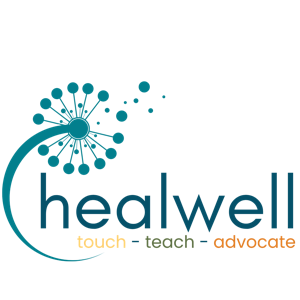I am an educated professional. I worked hard to get my license, and I seek out quality continuing education every year. In fact, I teach other professionals how to do what I do, and I am in the process of writing a book about it. I know what I’m doing.
None of that matters.
A few weeks ago, I went to the home of a dying woman. I loved her. This woman never let me leave her presence without embracing me and telling me I was a “sweet angel.” I spent hours listening to her and laughing at her stories — sometimes the same story multiple times. I gently teased her dog and made sure she got to hold my cat shortly after I adopted her. She loved animals.
The point is, I didn’t go there in my professional capacity. I just went there as a human being who loved her.
She was curled under the blankets on her bed, facing the wall, knees pulled up and her hands curled on the pillow next to her head. I sat down next to her, gently. “Hey Miss Lady,” I said, “how you doin’?”
She reached one arm up and pulled me down to hug her. I could barely hear what she whispered, and I could tell from her face that she was in pain. “Do you hurt?” I asked. She nodded. “Is it your head?” She nodded again.
I scooted up close to her and laid my hand on her forehead. I stroked her head and gently massaged her scalp. I combed my hair through her fingers. I managed my own breath as I tried not to break down with the knowledge that someone I loved was hurting.
In that moment, how easy it would have been to step into my professional training: The deepening breathing indicates parasympathetic nervous system dominance, a relaxation response. Her fragile, elderly skin means that a lighter touch is indicated. Persons in the early stages of dementia respond best to a slower pace.
How easy that would have been. And how useless.
This woman, this precious human, was not a professional problem for me to solve. She was a beloved being, suffering at the end of her life. She didn’t need my professional skill. She needed my humanity.
This woman, distilled down to essentials as she moved towards her death, didn’t care about my modalities. She didn’t care about my training. But I have no doubt she could feel my heart with astonishing accuracy. She would know the moment that I touched her if I had checked my feelings at the door. The act of combing her hair through my fingers, that surprisingly intimate touch, would be impossible if I filled my head with a treatment plan or outcome management.
I spent a lot of time in school training to be a massage therapist. I am now learning to bring the same attention towards training to be a fully present human. This education is the most difficult I have undertaken, and the most rewarding.
Let me be clear: my education was valuable and necessary. The continuing education is also valuable and necessary. The education is not the problem, the classes are. There are seminars after workshops after intensives to teach different tricks and routines we can do. There is precious little time spent giving us room to explore what it means to be a human in the presence of another (vulnerable, hurting) human.
For those lessons, we need to set aside the modalities. Forget the tricks and protocols, and show up. Show. Up. It’s not easy to put down all the armor and walk quietly into a room, empty and listening.
I left her room that day in tears, grieving for the end of her life. I’m crying a little now as I write this. There are a hundred metaphors and no words for that moment. I will settle for “precious” — defined as “of great value; not to be wasted or treated carelessly.”
We could use more precious in our lives, both personal and professional. What would happen if I could approach every client, every human, the way I approached her? What if I didn’t have to know someone well to know that my interaction with them can be of great value? It is not to be wasted or treated carelessly.
